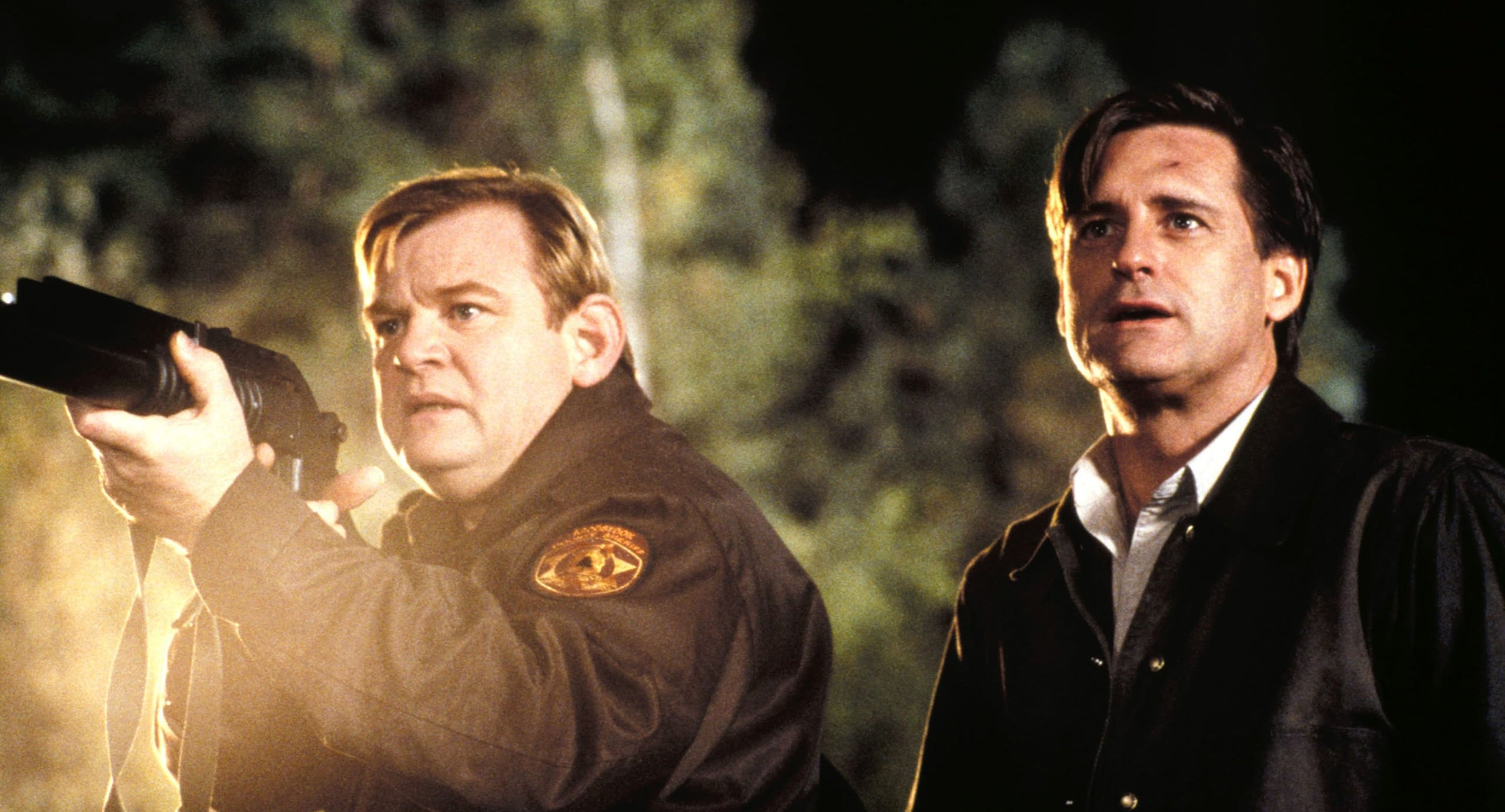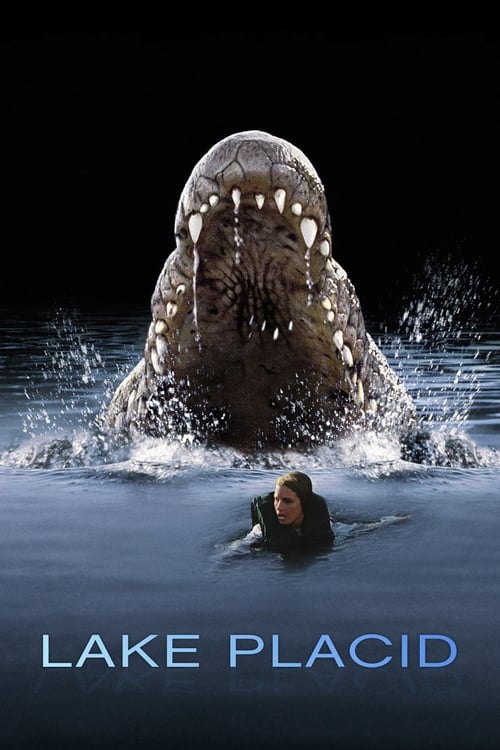Lake Placid – Film Review
Published April 25, 2024

When diving into the murky waters of the 1999 horror-comedy Lake Placid, directed by Steve Miner and scripted by David E. Kelley, one must first appreciate the cinematic era from which it emerged. The late ’90s saw a slew of creature features and horror comedies attempting to strike a balance between scares and laughs, with varying degrees of success. Into this landscape waded Lake Placid, with its tongue firmly in cheek, a 30-foot crocodile in its sights, and a mission to entertain without taking itself too seriously.
Lake Placid follows the tried-and-true formula of a remote location terrorized by an unforeseen threat, here a gigantic crocodile in the serene setting of Maine’s fictional Black Lake (referred to as Lake Placid). The plot kicks off with a grisly attack that draws a motley crew of characters to the scene, including the pragmatic sheriff Hank Keough (Brendan Gleeson), the paleontologist Kelly Scott (Bridget Fonda), a mythology-loving professor, Hector Cyr (Oliver Platt), and a game warden, Jack Wells (Bill Pullman).
David E. Kelley, primarily known for his television work on shows like Ally McBeal and The Practice, infused the screenplay with a brand of wit and snark that manages to elicit laughs amidst the tension. The dialogue is sharp and punchy, delivering comedic beats that play off well against the backdrop of potential danger. However, the reliance on these quips and odd character dynamics occasionally veers into territory where the humor feels somewhat at odds with the creature feature ethos, diluting the film’s ability to sustain suspense.
Bridget Fonda’s Kelly Scott brings an appealing blend of naiveté and strength to the ensemble, navigating her fish-out-of-water scenario with an endearing mix of sarcasm and determination. Bill Pullman’s Jack Wells offers the straight-man counterpart, grounding the group with his earnestness. Meanwhile, Oliver Platt’s Hector Cyr steals many scenes with a portrayal that epitomizes the film’s quirky take on traditional monster movie archetypes.
The real scene-stealer, however, is Brendan Gleeson as Sheriff Keough. His cantankerous interactions with the rest of the cast provide a consistent source of entertainment, creating a dynamic that is more memorable than the crocodile-induced havoc itself. Betty White appears as the delightfully eccentric Delores Bickerman, providing one of the film’s highlight performances and delivering lines that have since become cult favorites among fans.
Despite these strong performances, the characters occasionally feel underdeveloped, with motivations and backstories hinted at but not fully explored. The potential for character depth is there, but the film’s brisk pacing and emphasis on comedy and action sequences often leave little room for deeper engagement.
Steve Miner, with a directorial portfolio that includes entries in the Friday the 13th series and Halloween H20, approaches Lake Placid with an evident affection for genre conventions while attempting to inject a fresh comedic perspective. The result is a film that is visually competent, managing to balance the serene beauty of its setting with the imminent threat lurking beneath the surface.
The creature effects for the crocodile, a combination of practical effects and CGI, are impressive for the era, avoiding the temptation to over-rely on early computer-generated imagery. The practical effects, in particular, give a tangible sense of threat and physicality to the creature, which is crucial for maintaining suspense. However, the CGI elements, while ambitious, have aged noticeably, revealing the film’s age in certain key sequences.
Lake Placid sets a brisk pace, moving quickly from one set piece to the next, and its lean runtime ensures that the narrative doesn’t overstay its welcome. The tone, however, oscillates between horror and comedy, sometimes within the same scene, leading to a slightly disjointed viewing experience. While many films have successfully blended these genres, Lake Placid occasionally struggles to find a consistent balance, leaving viewers unsure of how seriously to take the proceedings.
This tonal imbalance does not significantly detract from the overall enjoyment of the film, largely due to the strength of its cast and the sheer fun of its premise. Yet, it prevents Lake Placid from reaching the heights of either genre, settling instead for a comfortable middle ground that is entertaining but ultimately feels like a missed opportunity for greater cohesion.
In the annals of creature features, Lake Placid emerges as a decently enjoyable anomaly.
